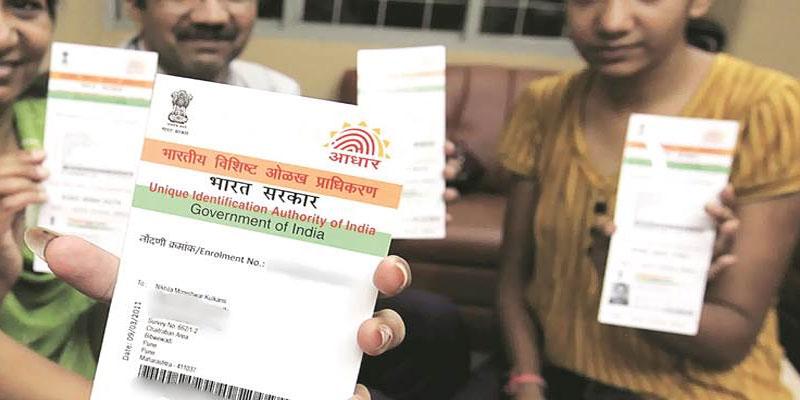Aadhaar Linked Ration Card: Eliminates the Hunger or the Poor and Destitute?

Amidst the BJP-led Centre’s plan to adopt direct cash transfer system instead of subsidized food grains, still, the majority of eligible citizens are being denied subsidized food grains in the name of Aadhaar linked ration cards.
The latest report from Jharkhand’s Simdega district said that an 11-year-old girl, Santoshi Kumari, died of starvation on September 28.
The Right to Food Campaign activists said that Public Distribution System (PDS) outlets in the area refused to give ration to the family of Santoshi since the ration card got cancelled for not being linked to Aadhaar. With no mid-day meals available in the schools during the Durga Puja holidays, the child died after going without a morsel of food for eight days. The government officials shamelessly argued that Santoshi died of malaria, not starvation.
The family which does not have a steady income or land is actually eligible for the subsidized rations under the National Food Security Act 2013.
According to the Right to Food Campaigners and NREGA Watch, the local dealer in Karimati village in Simdega had refused to give ration to Kumaris family saying that their ration card was not linked to Aadhaar card. They also found that the PDS outlet took off the name of 11 families including Koyali Devi, Santoshi’s mother, as their cards were not linked.
As the part of framing policies, in February this year, the BJP-led Centre had issued a notification saying it is mandatory to have Aadhaar to access subsidized ration under PDS after June 30. Other than subsidized food grains, the government made it mandatory to have Aadhaar cards for access to mid-day meals in government schools.
While the Aadhaar-linked welfare debates continue, Supreme Court order followed by Centre’s notification stated that holding an Aadhaar number cannot be made compulsory to avail of benefits under government welfare schemes, particularly to buy subsidised food grains.
The activists, however, asserted that it is a clear violation of several orders issued by Supreme Court since 2013.
Among such incidents, Jharkhand still rolls out such policies to impose Aadhaar on citizens even more stringently. In Latehar district of Jharkhand, a September 30 order by the district supply officer stated that people whose Aadhaar numbers are not linked to their ration cards by November would be deleted from the Public Distribution Scheme list.
Data show that technical errors also lead to the failure of such schemes. “This is a common problem we are seeing in Jharkhand – even when people have an Aadhaar card, the authorities are not able to link it with their ration cards because internet networks are often absent, their servers are down, the technical operator is absent or the portal just doesn’t work on some days of the month,” said Dheeraj Kumar, an activist with the Right to Food Campaign in Jharkhand.
On the other hand, the Centre is busy introducing a new scheme named as Direct Benefit Transfers all over the country without fixing the flaws in the existing system. As the part of the scheme, in the initial phase, the government has been transferring money into beneficiaries’ bank account instead of subsidized food grains through ration shops in three union territories, Chandigarh, Puducherry and Dadra and Nagar Haveli.
Get the latest reports & analysis with people's perspective on Protests, movements & deep analytical videos, discussions of the current affairs in your Telegram app. Subscribe to NewsClick's Telegram channel & get Real-Time updates on stories, as they get published on our website.
























